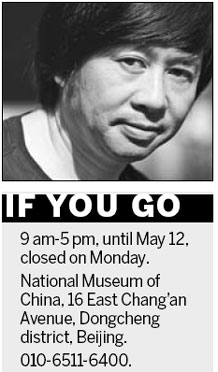
As a realism artist, Li's works excel in capturing details and dealing with light. New York art critic Dannis Wepman once praised him for his mastering of light and said the individual dignity in his works breaks nationality barriers.
In Li's words, it's the ordinary people in his works that attracts visitors to his shows, regardless of their nationalities.

"I believe in doing arts for life. I'm proud that everyone understands my paintings," he says.
Li was born in Shaoyang in Hunan province. He spent his childhood in the countryside. After middle school, he was forced to work in factories to earn a living. In 1977, he went to Guangzhou Academy of Fine Arts and moved to Los Angeles in 1988.
Many of his paintings are influenced by his childhood memory of living in the countryside, such as his series of Red Floral Quilt and Grandma.
"People in other countries know about the daily life of Chinese people through my paintings. They can also see the kindness of my people," says Li.
While most of his works show the kindness of ordinary people, one painting is filled with blood and violence: Nanjing Massacre. It's also the one that brought Li international fame in 1991.
"It's another way of expressing my theme - humanity and love. Although it's full of blood, it reminds people to love the world, not to kill," Li says.
After the recent show in Beijing, Li says he wants to free himself from the mundane world and spend time thinking about his life and arts. But he will never stop depicting ordinary people to show their inner love and humanity.
|
|
|
| Portrait of a portraitist |